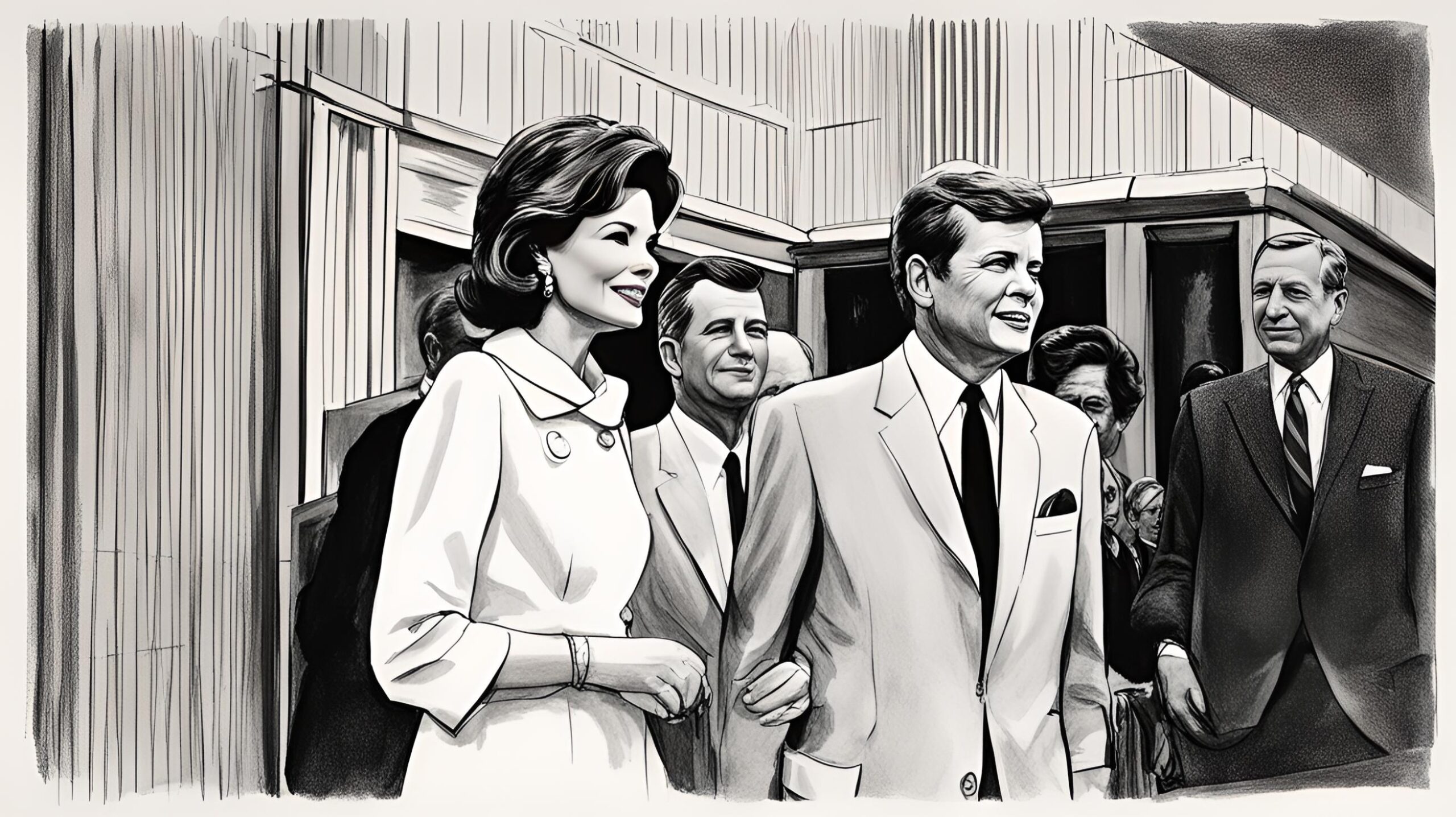Flashback to July 6
American History

On the fateful day of 11/22/1963, a monumental event jolted the United States, marking an inflection point in American history. John Fitzgerald Kennedy, the 35th president of the United States, was tragically assassinated. Kennedy, one of the pivotal figures of the 20th century, was traveling through the bustling city of Dallas, Texas, in an open-top convertible at the time of his death.
This happened during the prime of Kennedy’s presidency, abruptly terminating a promising term in office that was characterized by pivotal moments in civil rights and progressive reforms aimed at the betterment of the United States. The air was charged with shock, disillusionment, and profound grief at the loss of an esteemed leader who had won the hearts of many Americans with his charismatic leadership.
As unfortunate events unfolded, the 35th president was not the only casualty that day. The alleged assassin, Lee Harvey Oswald, also purportedly shot down Officer J.D. Tippit. The lethal attack on Tippit marked Oswald as a double murderer and landed him in the clench of Dallas law enforcement. This incident further deepened the unfolding grim narrative and added to the national bewilderment caused by Kennedy’s assassination.
While Oswald’s motive behind these gruesome murders remains shrouded in mystery and controversial theories, there is no refuting that Kennedy’s untimely demise dramatically changed the course of history. Kennedy’s assassination marked the end of the “Camelot era,” symbolizing a time of hope, aspiration, and dynamic forward thinking epitomized by the young and vivacious president.
As a result of the dramatic events of 11/22/1963, the presidency’s responsibilities fell upon the shoulders of Vice President Lyndon Johnson. At precisely 2:39 p.m., he was sworn in as the 36th president of the United States. Johnson assumed the leadership mantle in trying times, grappling with the weight of a grieving nation in shock at the sudden loss of a beloved leader and the swiftly changing political landscape that followed.
The day of 11/22/1963 and the assassination of President John Fitzgerald Kennedy continue to be the subject of countless reflections, analyses, and debates. Conspiracy theories concerning Kennedy’s murder and Oswald’s involvement continue to captivate public interest, making the event a centerpiece in the discourse around U.S. political history.
The assassination of Kennedy remains ever so relevant today, not just for its profound historical significance, but also as a measure of the indomitable spirit that characterized Kennedy’s era—in his words, the very spirit of “Ask not what your country can do for you – ask what you can do for your country.”
To conclude, the assassination of John F. Kennedy, the arrest of Lee Harvey Oswald, and the subsequent swearing-in of Lyndon Johnson as the 36th president constitute one of the most influential series of events in American history. The events of 11/22/1963 continue to shape the narratives around leadership, democratic ideals, and the nature of America’s national ethos. Further, the date emphasizes the daunting unpredictability that characterizes politics and serves as a stark reminder of the dangers leaders face in their quest to affect change.
We strive for accuracy. If you see something that doesn't look right, click here to contact us!
Sponsored Content

World’s largest hailstones 1.5…
The world witnessed history…

Fourteen firefighters die in…
On July 6, 1994,…

Lunar Eclipse – Umbral…
Witness the breathtaking lunar…

In Jackson, Michigan, the…
The historic inaugural convention…

Cleveland sends 2,000 troops…
On July 6, 1894,…

